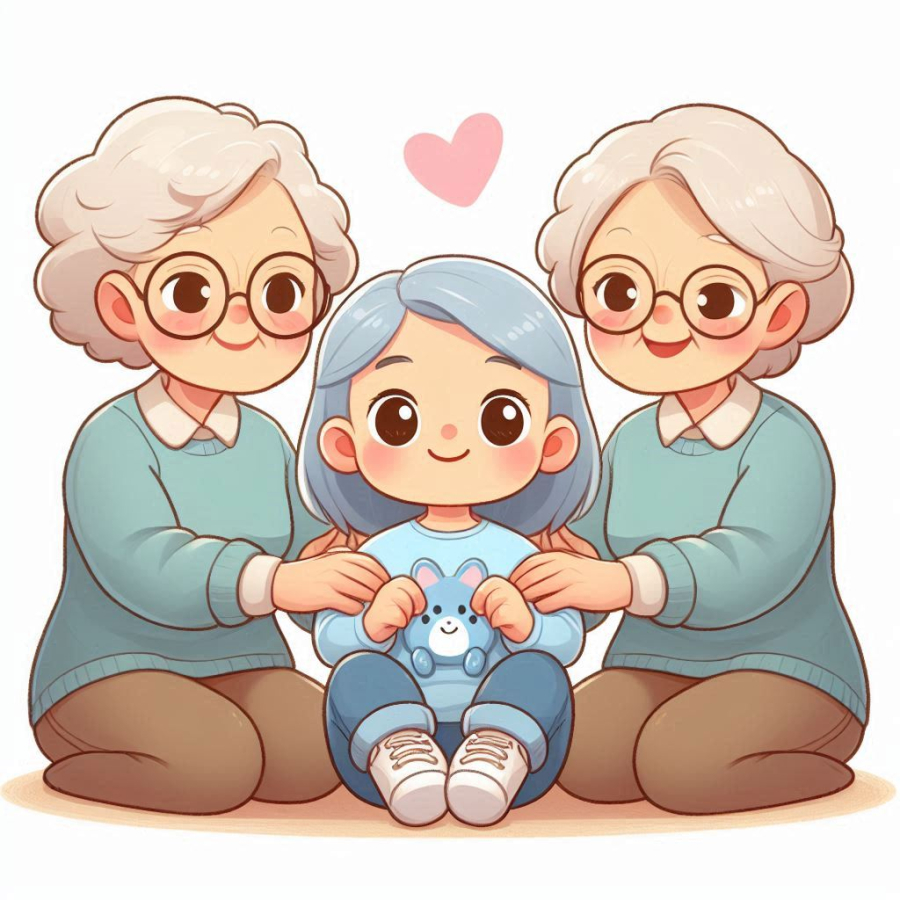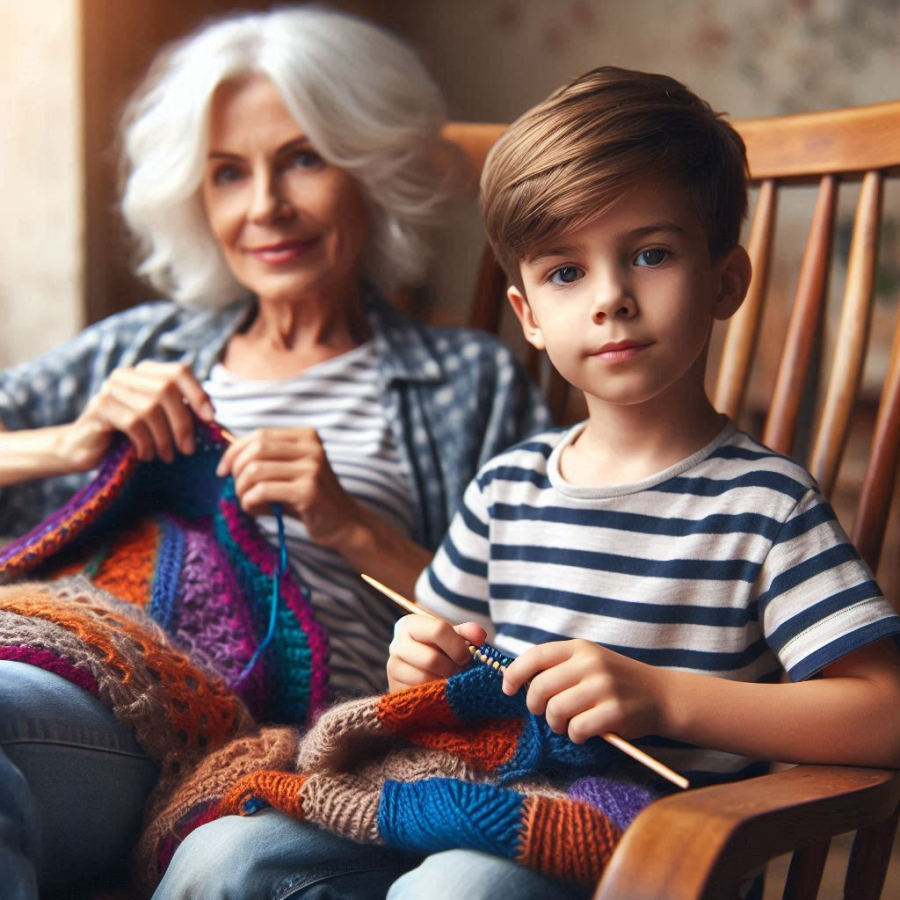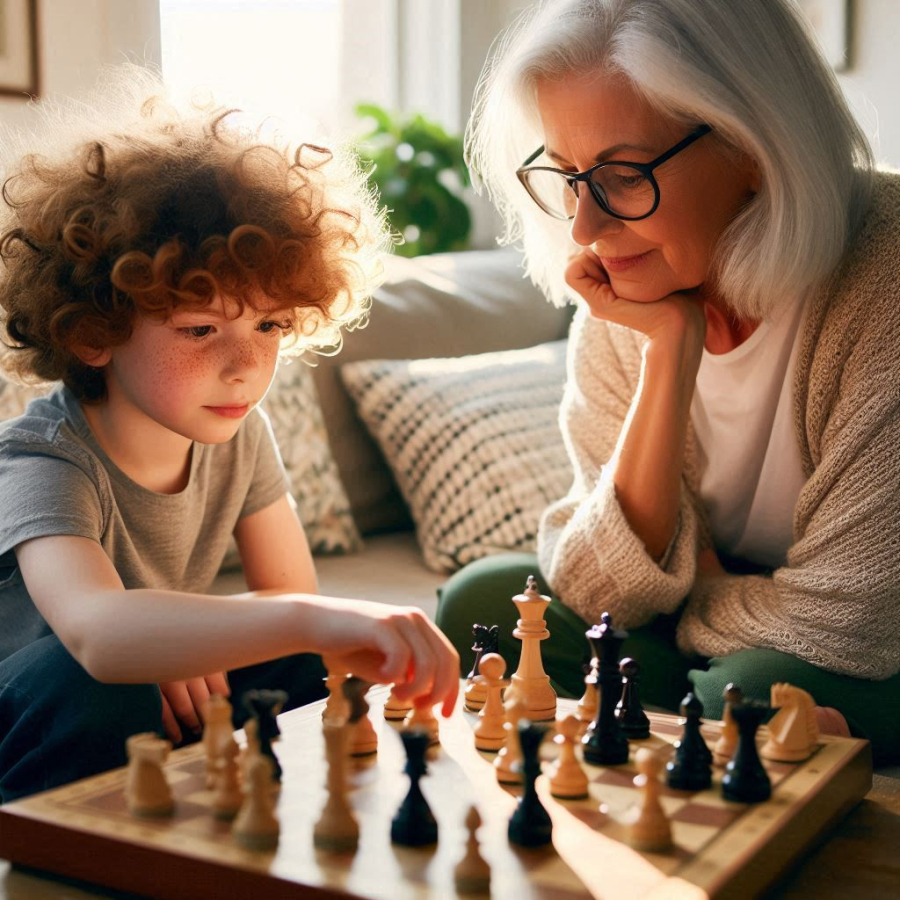A story shared by an online user has caught much attention. In the story, she shares that both she and her husband are very busy with work, and thus, the responsibility of childcare falls largely on the help of their parents. The maternal grandmother takes care of the child five days a week, while the paternal grandmother does so on the weekends. However, she notices a difference in the child’s affection towards the two grandmothers.
Once, the paternal grandmother gently chided, feeling that the child only favored the maternal side of the family. “The child never kisses me; only the maternal grandmother receives hugs and kisses, and only thinks of her when there is delicious food,” the paternal grandmother exclaimed. This left the young couple perplexed, as both grandmothers are family and are taking care of their grandchild. So, why does this “discrimination” exist?
This question is indeed thought-provoking, and many people have likely experienced similar situations. Is the maternal grandmother always given more “favoritism” by the grandchildren? Interestingly, science has already provided an explanation for this phenomenon.

Do Maternal Grandmothers Receive More “Favoritism” from Grandchildren?
Research Findings
A research team conducted a random survey of 831 children to understand the closeness of their relationships with their maternal and paternal grandparents. Results showed that grandchildren tend to meet and feel closer to their maternal grandmothers than their paternal grandmothers. Even when the maternal grandmother lives farther away, she tends to visit her grandchildren more often than the paternal grandmother.
American evolutionary psychologist Todd DeKay also conducted a similar study on 120 children. The findings indicated that the psychological closeness of the children to their elderly relatives was in the order of maternal grandmother, paternal grandmother, maternal grandfather, and paternal grandfather.
English psychologist John Bowlby’s attachment theory suggests that there is a natural and special emotional relationship between infants and their caregivers. When a child feels sleepy, hungry, tired, or sick, the mother is usually the one who can respond promptly, creating a safe and trusted bond with the child.
According to this theory, if the maternal grandmother frequently cares for her grandchild and promptly meets the child’s needs, she becomes the person with whom the child forms a strong attachment. John Bowlby introduced the concept of a “secure base” in his attachment theory, referring to a safe and close person whom the child can rely on when exploring the world, typically the primary caregiver.
Many families notice that their children are closer to their maternal grandmothers, which may be because she is always by their side, providing a sense of absolute security.
The paternal grandmother need not worry about being distant if she stays close to her grandchild and shows her care in the right ways. Children can develop secure attachments with multiple people simultaneously. Imagine a child’s mind as a stool with multiple seats, reserved for those who make them feel loved and secure. The maternal grandmother can sit on one seat, and the paternal grandmother can occupy another. There is no competition between them for the child’s affection.
Whether a child forms an attachment with their paternal grandmother depends mainly on whether she provides a sense of security and love during their interactions.

It Depends on Creating a Sense of Security and Love
2 Reasons Why Grandchildren Are Closer to Their Maternal Grandmothers
Maternal Grandmothers Have a Higher Rate of Caring for Grandchildren
According to an online survey of 2,241 participants about who takes care of their children, nearly half said that the maternal grandmother is the primary caregiver. The second most common choice was self-care by the parents, followed by the paternal grandmother.
Based on John Bowlby’s attachment theory, when children are young, they are often cared for by their maternal grandmothers. When they are hungry, sleepy, or need to use the bathroom, they turn to their maternal grandmothers, naturally forming a close bond.
Even at a young age, children can sense companionship and daily interactions. Whoever shows them more love and presence will become closer to them. There is a unique type of family love across generations. Sometimes, this intergenerational love can be deeper than parental love because it comes with fewer expectations and more tolerance.

Children Sense Companionship and Daily Interactions
The Maternal Grandmother’s Special Love for the Child’s Mother
In the documentary “Grandmother,” the reporter asked the grandmothers, “Why do you want to take care of your grandchildren?” The grandmothers unanimously answered, “When my daughter gave birth, I had to help take care of my grandchild.”
When a maternal grandmother cares for her grandchild, she is not just caring for her descendant. In her heart, her daughter and grandchild are equally her children, and she worries about and loves them as much as she does herself.
Guys, Don’t Miss Out – 9 Ways to Make Her Smile on International Women’s Day!
This International Women’s Day, let’s go the extra mile in showing our appreciation for the phenomenal women in our lives. Dienmayxanh has compiled nine meaningful actions we can take to make a difference in the lives of the special women around us, and to join in with celebrating women everywhere on March 8th. Let’s take a closer look!



































